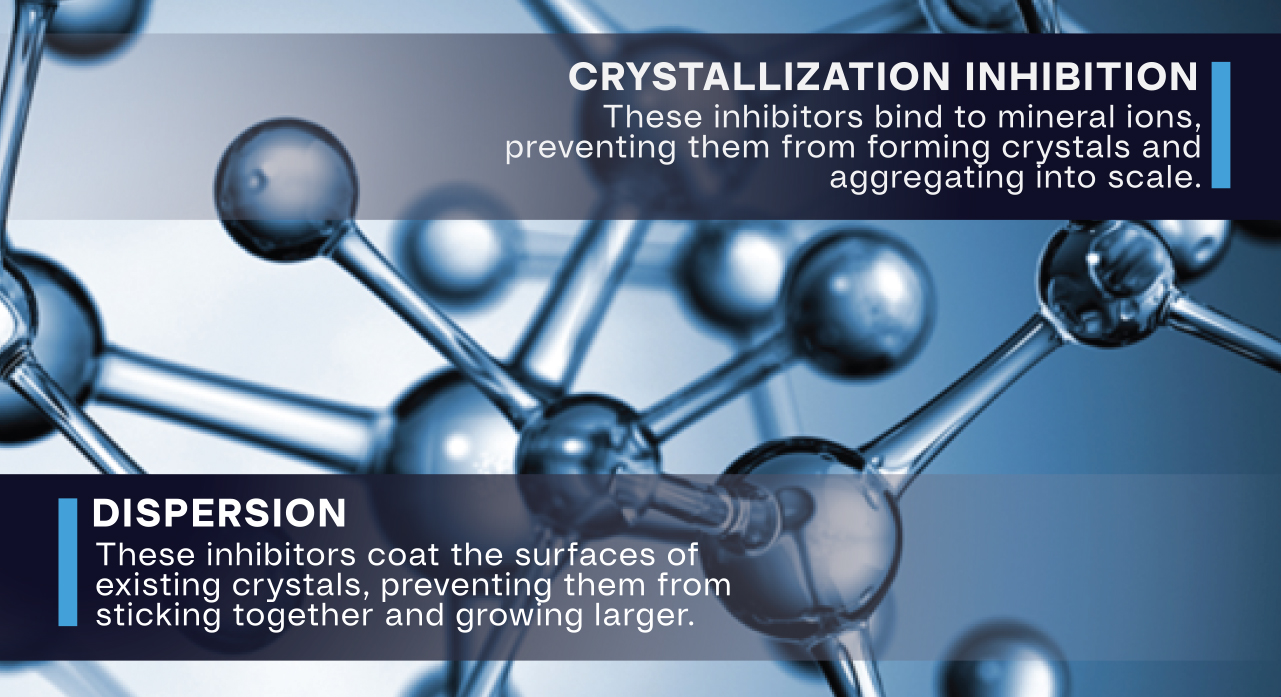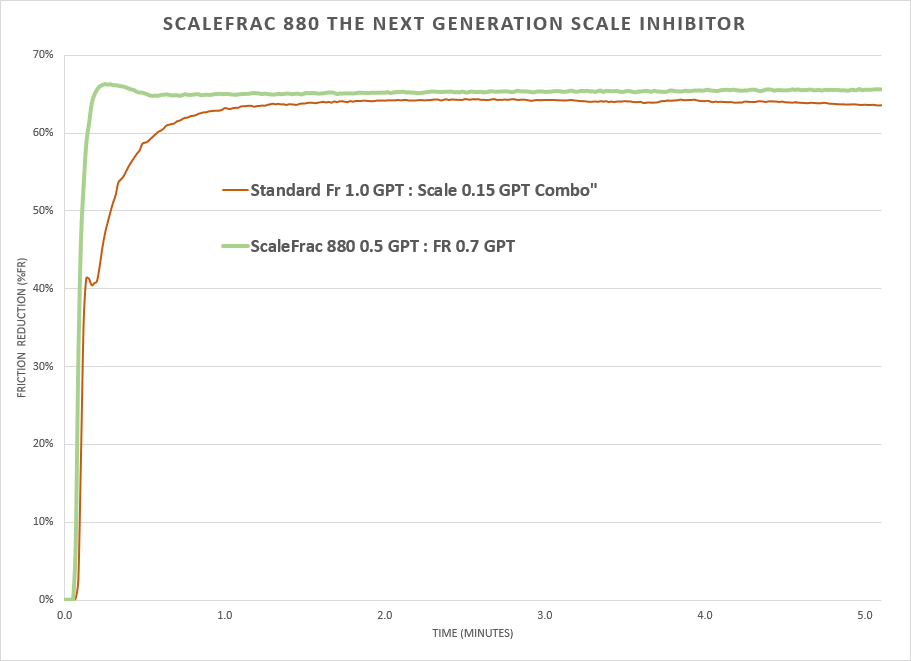MATRIX TOLL PATENTED
The Next Generation:
SCALEFRAC 880

Scale Inhibitors
General Information
In hydraulic fracturing, or fracing, scale inhibitors play a critical
role in ensuring the long-term success of the well. These
specialty chemicals prevent the formation of mineral deposits,
known as scale, which can clog up fractures and pipelines,
significantly hindering oil and gas production.
WHY ARE SCALE INHIBITORS
IMPORTANT IN FRACING?
Fracing fluids often contain dissolved minerals like calcium,
magnesium, and barium. When these minerals come into
contact with formation water or other injected fluids, they can
precipitate and form scale. This can occur due to changes in
temperature, pressure, or pH within the wellbore. Scale
build-up can have several detrimental consequences:
- REDUCED
FLOW: Clogged fractures
and pipelines
restrict the flow of
oil and gas, leading
to decreased
production rates.
- EQUIPMENT
DAMAGE: Scale can damage
pumps, valves, and
other equipment,
leading to costly
repairs and
downtime.
- FORMATION
DAMAGE: Scale deposits can
impede flow within
the formation itself,
hindering
hydrocarbon
recovery.
HOW DO SCALE INHIBITORS
WORK?
Scale inhibitors come in various forms, but they generally work
through one of two mechanisms:

BENEFITS
OF USING
OUR NEXT GENERATION
SCALE INHIBITOR:
- LOWER FRICTION REDUCER CONSUMPTION BY 20%
- INCREASE FRICTION REDUCER PERFORMANCE BY
SUPPORTING HYDRATION
- LESS DEGRADATION TO FRICTION REDUCER OVER TIME
- ADVANCED BEYOND CONVENTIONAL INHIBITOR
PERFORMANCE
- LESS COLLOIDAL DAMAGE TO THE SHALE FORMATION
- LOWER VOCS FOR THE ENTIRE CHEMICAL PACKAGE
- DECREASE YOUR TOTAL COST TO TREAT
1000 GALLONS BY 10% TO 30%
- REDUCE HORSEPOWER CONSUMPTION
- ENVIRONMENTALY FRIENDLY
- INCREASE BPM

*Chart showing the difference between standard Fr's and The Next Generation ScaleFrac 880.
CHOOSING THE RIGHT
SCALE INHIBITOR
Selecting the most effective scale inhibitor for a specific fracing
operation depends on several factors, including:
- The type of minerals present in the formation water and fracing fluid.
- The type of minerals present in the formation water and fracing fluid.
- The compatibility of the inhibitor with other fracing fluid components.
ENVIRONMENTAL CONSIDERATIONS
The use of certain scale inhibitors in fracing has raised concerns
about their potential environmental impact. Some inhibitors, for
example, may degrade into harmful by products or persist in the
environment for long periods. Therefore, choosing environmentally
friendly scale inhibitors is essential for responsible fracing practices.
- MINIMIZED ENVIRONMENTAL IMPACT
- ABSENCE OF HARMFUL VOCS
- MEETS STRONGENT SAFETY STANDARDS


